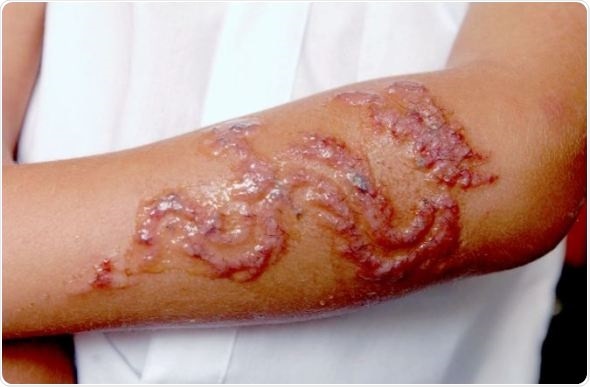Jul 26 2017
Dermatologists agree that incidences of black henna reactions are on the rise. Out of the 288 dermatologists who took part in the recent Skin Health Alliance 2017 Dermatologist Survey, 72% thought the incidence of patients with a reaction to black henna temporary tattoos is increasing year on year.

In light of this worrying new statistic, the British Skin Foundation would like to warn the public again of the dangers of black henna temporary tattoos (BHTT’s). The majority of BHTTs are not based on henna at all, but a substance called para-phenylenediamine (PPD) which is found in hair dyes. PPD is allowed for use in hair dye, but its use for skin contact products such as temporary tattoos is illegal in the European Union.
When PPD is used on the skin in this way it can cause blistering, painful skin burns and may even lead to scarring. It can also leave the person with a
lifelong sensitivity to PPD, which increases the risk of a severe allergic reaction when using hair dye in the future.
The British Skin Foundation strongly recommends that people avoid black henna at all costs.
Dr Anjali Mahto, Consultant Dermatologist & British Skin Foundation Spokesperson says,
Black henna is well known to cause skin reactions and should be treated with caution, particularly in children. Year after year we see ever more severe reactions to black henna tattoos. What might seem like pretty body art can quickly turn nasty with horrific blistering, permanent scars and even in the most severe cases life-threatening allergic reactions. During the summer tourists and parents are advised to think twice whether it is worth the risk for a piece of body art.